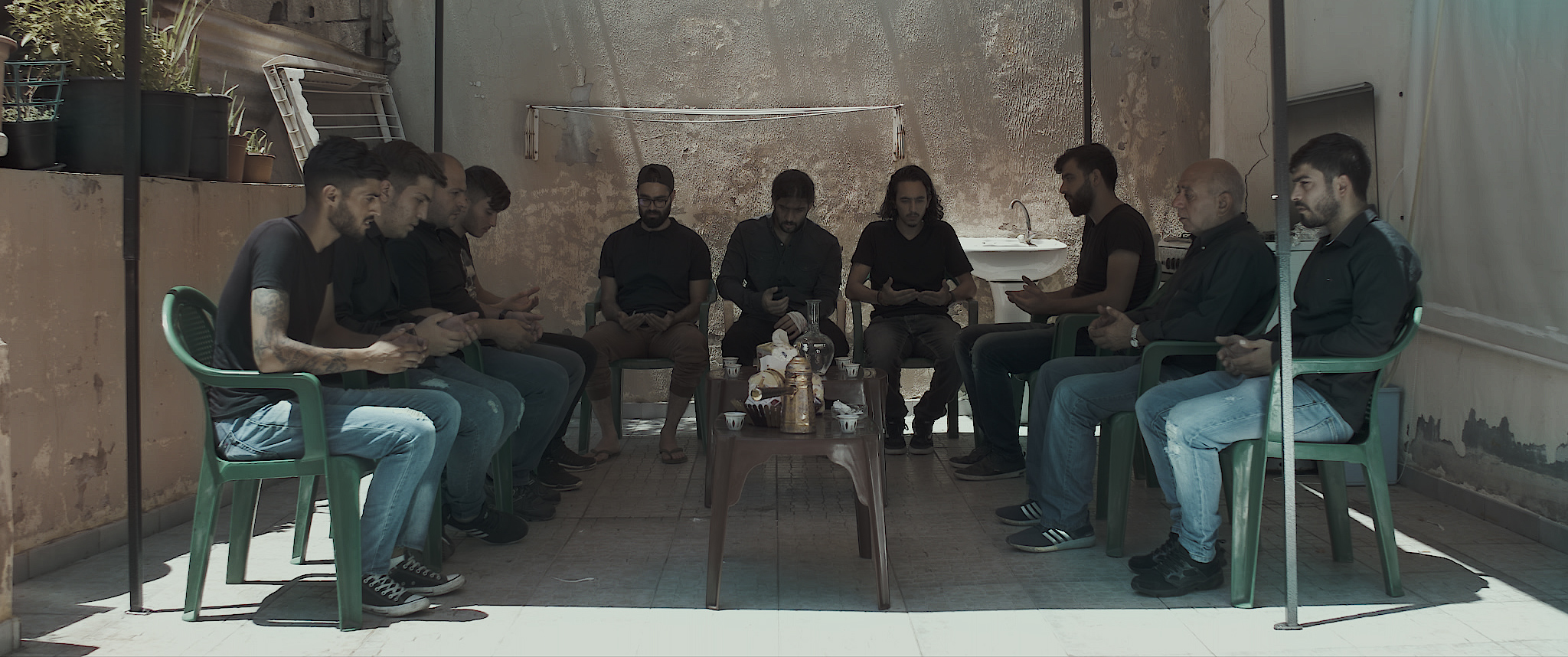Film Review written by Nahed Salah, Egyptian film critic and book author
‘Youssef’ (Kazim Fayyad, Lebanon, 2021) winner of the best first feature in Alexandria Film Festival 2021.
Recent events in Beirut portray a significantly different picture from the one often celebrated in poetry, music, and classical films as ‘a city of beauty and love’. Beirut’s free spirit is difficult to find amongst recent tragedies such as the Port explosion in 2020. The city, now more Chekhovian than anything else, is entrapped in anguish, poverty, violence, and hardship adding layers of fear and angst that is now rampant in its streets.
When I finished re-watching the Lebanese film ‘Youssef’, I was contemplating the extent to which the civil war impacted on the film director Kazim Fayyad’s vision of Beirut. Fayyad was born in 1994 in the post-war era. A new war was raging outside, seemingly borne out of thin air or from the city’s smoke etched all over the news.

The film begins with Youssef (Houssein Haidar) trying to save his brother, Firas (Eyad Nouredine). The film narrative alternates between the fact that Firas is still alive with Youssef trying to protect him from the weapons-mafia operating between Lebanon and Syria, and Firas been tragically killed in a gun fight. The intentionally blurred reality encourages the audience to view unfolding events through a similar lens as that of Youssef’s, a viewpoint whose reliability is being continuously questioned. Through this restless shifting between reality and fiction, the audience feels the hardships of Lebanese life, from poverty, arms trade, and murder to the constant struggle of maintaining one’s humanity. The film’s core message is seen through Youssef’s search for help in psychotherapy sessions. Youssef’s recovery begins when he opens to his university Professor.
Contemporary Lebanese films such as ‘Memory Box’, (Joana Hadjithomas, and Khalil Joreige, 2021), and ‘The Sea Ahead’ (Ely Dagher, 2021) portrayed societal shift in Lebanon following the civil war: the violence, its atmospheric dread intermingled with the short-lived hope of the country’s post-war years. ‘Youssef’ does not theorize as a film, but rather presents an emotional artistic piece that reflects the anger and pain embedded within the country’s layers of disruption and madness. After making 5 short films as a director, Fayyad focuses on Lebanon’s current turbulent affairs in his first feature-length film exposing his city as a market for weaponry and a nightmare for its citizens. There is a clear correlation between the violence and its devastating effect on people’s mental state. It is important to note that the film is based on true events. The camera showcases a panoramic view of Beirut from above, where the viewer can see the roofs of poor houses, before closing in on the miserable living conditions of its afflicted citizens. A society that traditionally showed its best parts is not one that talks about its misery with equal measure.
Youssef, the film protagonist, provides an example of a Lebanese citizen caught between his dreams and the bitter reality he endures. The titular character says, bluntly: “We are afraid to sleep; we do not want to dream about it.” Youssef lives two separate lives, one in his waking world and the other in his torrid dreams, a disorder referred to as “Dream Reality Confusion,” an inability to distinguish between one’s dreams and the real world one inhabits. He sleeps for days at a time, occasionally shocked into an awakened state by the weight of reality.
Through ‘Youssef’, Fayyad explores his own memory, one that is perpetually haunted by the civil war, a war he did not witness but nevertheless inherited. Fayyad is attached to his strange city, and wrestles with her legacy, and where his story fits within its broader narrative. In this ebb and flow, Fayyad through Youssef shares with his city, Beirut, his past, vague as it is, and the misery he is drowning in. The misery is collective—the consequence of questions left unanswered, and a war that never truly ended.
There is a touching scene, which embodies the film’s core message: Youssef confronts his Professor, who tells him that the opportunities he longs for will not arrive on a silver platter, but rather, “The opportunity spreads fear.” Youssef, in his frustration, exclaims: “Fear?!” He challenges the Professor’s definition of fear—being late for work, or the insecurity of one’s own home, that one day the roof may cave in? Is it deciding between paying for food or transportation to go home? Perhaps it is the inability to pay a medical bill? He ends his soliloquy abjectly: “We, the poor—they sow seeds of fear inside of us so that we do not demand our rights today in case we wake up in hell tomorrow.” The film is dedicated to the destitute and psychologically distressed in Lebanon and worldwide, especially those traumatized by war.